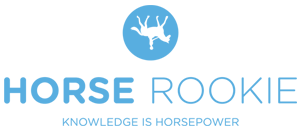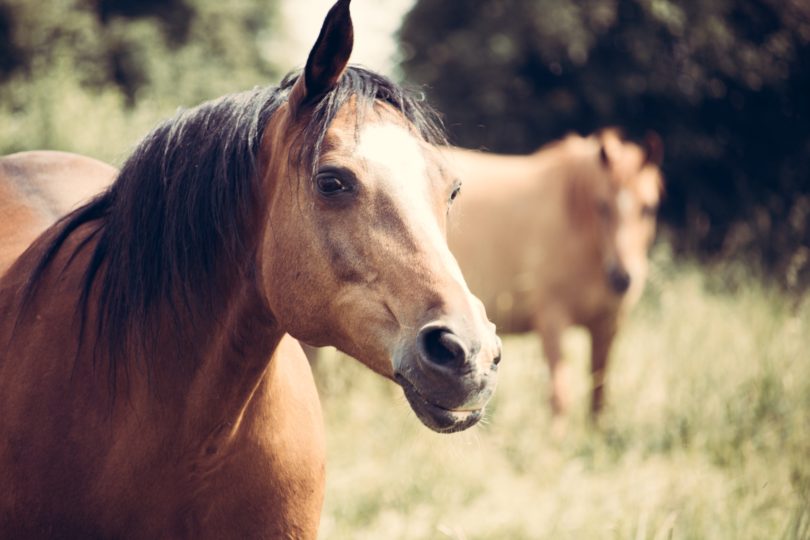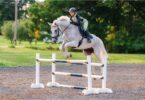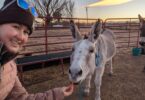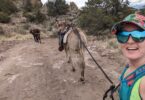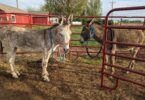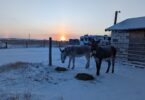Shift your expectations
There are so many variables that go into horse riding. We are essentially trying to maneuver our upright, two-legged frame atop a massive four-legged animal. There is a lot to say for our physical fitness and coordination.
But we riders go through a lot more than just physical demands when riding. We also do a great deal of mental gymnastics, simultaneously considering our goals, our horse’s strengths and weaknesses, and the potential risks involved. I used to particularly struggle with the risks: the numerous things that could go wrong at any given time.
Hope for the Best, But Expect the Worst
Before each ride, I dealt with these risks systematically evaluating each possible emergency and poor outcome. I would then consider the probability of each of those situations by filtering them through the current circumstances (which horse I had that day, how that horse was acting, weather, other people in arena, spook factors).
By the time I got on my horse, I would have used my imagination to play out all the possible bad scenarios. Talk about setting a grim mood.
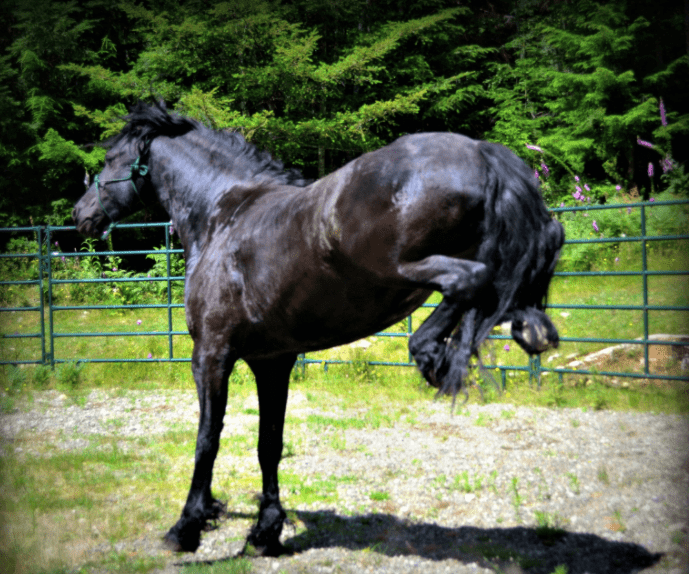
Photo Credit: Canva
Why did I do this? Well, I wanted to be prepared. Prepared in the case that something went terribly wrong while I was riding. I wanted to have an action plan so that I could respond in those situations.
I wanted to do well in my lessons and to conquer the danger before the danger ever happened.
On paper, it sounds pretty fool-proof. In reality, it’s crazy-making.
The Fundamental Flaw with This Mentality
Horses are half-ton mirrors. They detect our anxiety sometimes before we do. The fundamental error in my way of thinking was not in trying to be prepared. The error was that I had lived out these panic situations several times in my mind before ever getting on my horse.
Not knowing the source of my anxiety, the horse was left to guess what danger awaited them, and would react according to their personality.
Recently, I took two little girls riding for their first time. One of them was confident and volunteered to ride first. When it came time for the other little girl to ride, she was so nervous, but still wanted more than anything to get on. So I told her the secret of being a Cowgirl: “You just have to relax. That’s it. Take a deep breath, and relax.”
Although the “Hope for the Best, But Expect the Worst” mentality sounds realistic, the focus is inevitably on the worst-case-scenario.
As it plays and replays in our minds, it creates a reality within us as though it happened several times over, even if it never actually happened. This, in turn, breeds a deeper anxiety when we ride, which is not what our horse needs. Our horses, being so intuitive, will pick up on it and start to react to that reality also. Their instinctive self-defense will kick in when they sense a threat, even if they do not know what exactly that imminent danger is.
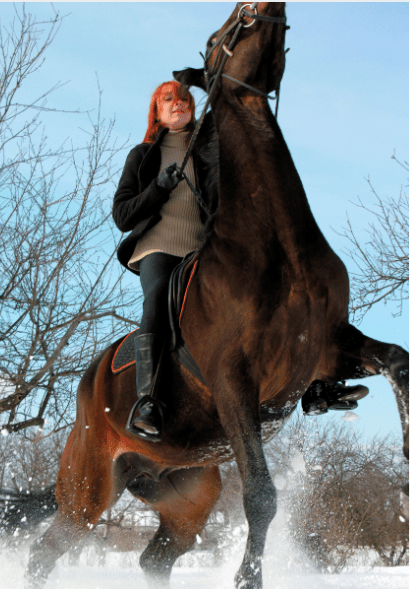
Photo Credit: Canva
Focusing on the negative (especially the most extreme negative) will take our attention away from the ideal outcome.
My trainers used to always get on me about my habit of looking at the ground while riding. I don’t know why I looked at the ground all the time, I suppose it is just what felt natural. As long as I was looking at the ground, my horse was crooked an unfocused.
You can just imagine how problematic that was when trying to get through a seven-jump course. It is the same with focusing on any desired outcome with our horse. They are looking to us for direction, so we have to look at where we are going in order to get there.
A New Way: Prepare, But Expect the Best
Does this sound like practically the same saying? Yes, it does, but one crucial nuance changes the whole game: prepare once. There will always be risk factors when riding — it’s even wise to consider any new risks before we hop on the horse’s back. But think of it once, make whatever adjustment needs to be made, then be done with it.
After that, shift your expectation from the worst to the best: what you want to accomplish. Even for pleasure riding and trails, just make it your goal to enjoy the ride. Be grateful. Be tenacious. Be driven and purposeful.
Don’t let fear hold you back in a place where all horses spook and everything you do is futile. Look where your next jump is, and your horse will follow.
Know the whole course, and the horse will trust that you have the situation under control.
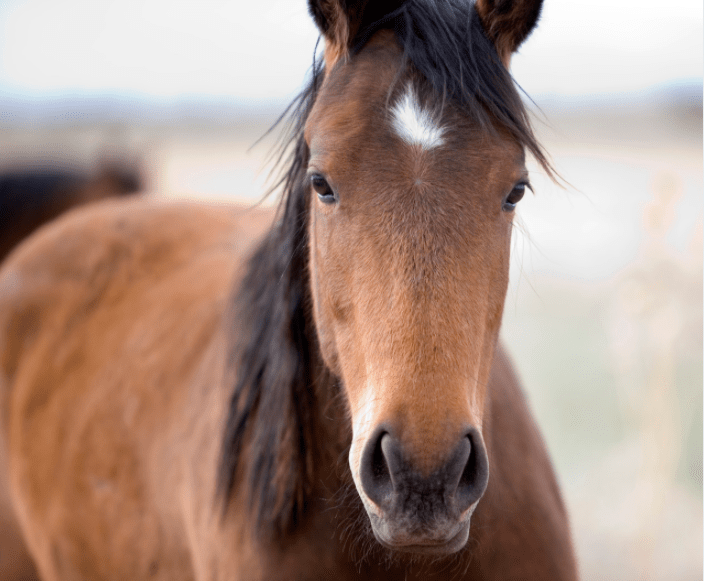
Photo Credit: Canva
My favorite part of riding, hands down, is riding bareback. I absolutely love it. Funny enough, it’s where I’m most likely to fall off. So when I get those squeamish feelings in my belly about hopping on a horse bareback, I just ask myself: “What’s the worst that can happen – falling off? Okay, so you’ll fall off. You will just get back on again.”
More often than not, though, I don’t fall off. I just have a damn good ride.
Frequently Asked Questions
How long should a horse training session be?
A horse training session should be long enough to accomplish something valuable, but not so long you and/or the horse becomes burnt out and exhausted. Keep in mind that every time you work with a horse it is really a training session.
Your session should be tailored to both individuals, as well. If your horse is very young and you’re working on simple basics, you may only work with them for 10 minutes. These sessions can be done multiple times a day. If you are working with a horse that has been in regular work and you’re preparing for a show, you may work for 45 minutes to an hour each time.
Is horse training cruel?
Horse training can be cruel if done incorrectly. Horses are a domesticated animal, which means they are now more predisposed to be comfortable around humans. If the human uses physical force to frighten the horse into compliance, though, it can cause a great deal of stress.
If the trainer is patient, calm, and works with the horse in a way horses understand, it can be a rewarding experience for both parties. Many horses even enjoy training sessions, or pleasing their person, because the person helps the horse feel comfortable and safe. Training should always end on a positive note and with the horse being more relaxed.
What skills does horse riding give you?
Horse riding gives you many different skills – particularly related to fitness. You can expect your strength and endurance to be greater as well as your dexterity and physical coordination. Horseback riding also helps with your overall balance, flexibility, and posture. With so many jobs being at a computer all day, all that physical activity can really help prevent headaches, muscle pains, and back pain.
Furthermore, you can expect to gain improved problem-solving skills, become a better team player, and improve your overall communication. People that ride horses often develop better control over their emotions by learning to stay calm and overcome fear or frustration.
Can horses sense a good person?
It’s a very romantic thing to think that a horse can just smell a good person or read someone’s aura and discover their true intentions, but that is giving horses both too much and not enough credit. Horses can’t really mind meld with humans and read their innermost thoughts, but what they do is actually more amazing.
Horses were domesticated 6,000 years ago and, in that time, they’ve really adapted to humans. They can pick up some of the most subtle body language cues – some that other people even miss. If you haven’t heard of Clever Hans please look him up, because he’s an amazing example of how good horses are at reading humans.
What horses can sense are subtle clues that people give off. Researchers have proven that horses can identify angry, sad, or nervous people. Oftentimes, they notice and respond before you even notice these emotions in yourself. Aggressive or angry people are scary for horses and worth remembering, so it may seem like a horse has a special sense to weed out the good from the evil. As it turns out, horses are just good listeners.
How do you correct a horse that balks?
If you are dealing with a horse that balks, you need to first identify why they are balking. It can be frustrating to deal with your mount flat-out disobeying you, but avoid getting angry! Anger can lead to poor decisions, stress the horse, and can make the whole situation worse.
If your horse is balking out of fear, you should work on helping them overcome that fear and trust you. If they are balking due to a lack of respect, you need to spend more time in training, both on the ground and under saddle, so they learn that you can be trusted to lead them. If they don’t want to leave the yard to go on the trails, make it more work to stay. If your horse is balking because you asked them to do something they aren’t mentally or physically prepared to do that’s on you. Go back and work them up to it.
P.S. Enjoy this article? Trot on over to:
- How to Ride a Horse for Beginners (Basics, Safety, Mistakes)
- Corral Cards Review: Horse Knot Tying Pocket Guide
- Why horses are dangerous (but worth the risk)
- 3 Fear-free ways to gain your horse’s trust and respect
- What are some ways to gain confidence riding horses
